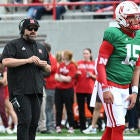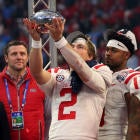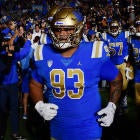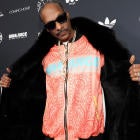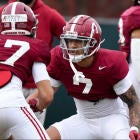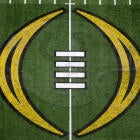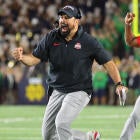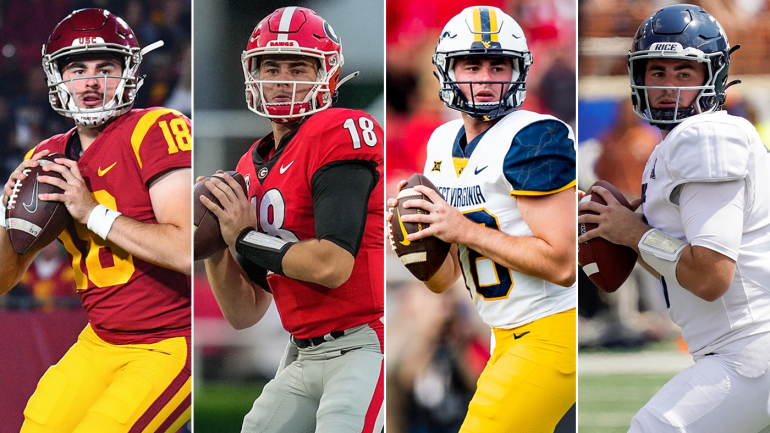
BELLAIRE, Texas -- JT Daniels knows why he agreed to an interview on a recent lazy Sunday morning at a cafe near his suburban Houston apartment. The former USC, Georgia, West Virginia, Rice quarterback might as well be the face of the transfer portal.
He has the unique experience of transferring three times and playing for four schools in a six-year career. Even in this age of unfettered free agency, that's a lot.
That makes Daniels a portal unicorn. And a sage.
"A lot of people have reached out to me about transferring and the process," Daniels said. "I'm the guy."
From top high school prospect in 2018 to medically retiring nine games into his final season at Rice in 2023, there are few more qualified to speak about the modern machinations of player movement. At times, the 23-year-old took it a step further, analyzing the state of the game while munching on a light brunch.
"As much as I transferred, I never gave a shit about what people said about transfers," Daniels said. "I don't have social media apps, so I don't hear the discourse. I'm not super familiar with why people take an issue with it."
Nor does he need to be. Social media can ruin a modern college athlete. He didn't abuse the system; Daniels took advantage of it -- academically, athletically and philosophically.
Even if he doesn't know it, Daniels remains a signpost for modern college football -- a mile marker for what came before and what is still to come.
He was around the game for so long that the transfer portal actually came into existence during his freshman year at USC in 2018. The one-time transfer exception debuted while he was helping win a national championship at Georgia in 2021.
Twice Daniels has been a graduate transfer. Now, he is looking forward to diving into a coaching career starting at the entry level as a graduate assistant breaking down film and fetching coffee. Daniels certainly has enough contacts in his phone based on his travels, plus an estimated 15-25 players who have called him for transfer advice.
Before he moves on with his life, though, there is the not-so-small matter of what caused him to medically retire in November. Daniels suffered four concussions during his career, two of which he has termed "severe."
"Someone could call me a bad name, and I'd get concussed," he said of his lingering sensitivity.
It was all explained matter of factly. There is no bitterness or second-guessing; it's football and all that. But there's a reason he's currently wearing eyeglasses.
"I'm still not back to normal," Daniels said. "I lost 'binocular disparity.' Your eyes are constantly communicating with each other. You see one picture with the left and one picture with the right. Naturally, your brain is combining them. When you see double vision, they're not communicating with each other. It's one picture, one picture and they don't merge.
"I kept playing for the first half [of Game 9] with it. You're pretty much seeing two pictures of each [wide receiver]. Pick one to throw to."
Asked what he remembers about the early days at USC, Daniels offered, "I get that one all the time. I really don't [remember]. One, I've lost a decent amount [of my] long-term memory. That makes it a little tougher. In general, it all kinds of blends together."
Daniels said he couldn't drive for four weeks after his latest concussion in November. Will the memory loss resolve itself?
"I hope so," he said.
Goodness, is the sport safe?
"Yeah, it's safe enough for people to play," Daniels concluded. "Genetically, I must have a weak brain."
And that, for now, is that. Daniels is happy to be The Transfer Guy offering free advice to players who have either entered the transfer portal or are considering doing so. Conclusions?
"Typically, we don't enforce policies that force loyalty," Daniels said of the transfer process. "We want loyalty to be organic and natural. … When you limit the ability to exercise your freedoms of transferring, there needs to be a very valid reason to do so. And to just blatantly enforce loyalty, I think it's hard to argue that case."
Common sense thinking and the threat of legal action have changed the era of forced loyalty. Daniels didn't play during the decades of restricted player movement with a scholarship being the lone payment players could receive for putting their bodies on the line. It's hard to conceive of a time when coaches could "block" players from transferring to certain schools ... just because.
From 1964 until 2021, the NCAA required "a year in residency" preventing undergraduate transfers from playing until they spent a year off the field to get their academics in order -- regardless of their scholastic status. That eventually proved to be short-sighted and possibly illegal, leading to the creation of the portal and the one-time transfer exemption.
All restrictions on the number of transfers went away recently -- for at least this semester.
"I don't know a single person who transferred who didn't get a degree," Daniels said. "Meaning, throughout their entire career, everyone I have played with to date who was an undergraduate transfer eventually graduated or are currently on track to do so."
Most of the negativity you may have heard about the process has never crossed paths with Daniels.
"Very rarely is [transferring] an instance where a guy didn't want to compete and left," he said. "There was never a transfer that I had that wasn't a mutually agreed upon decision. It's really the same for guys everywhere.
"The overwhelming majority of transfers that I've seen is guys leaving on good terms with coaches they've talked to. … The transfer portal has [turned] out to be misconstrued in terms of kids don't want to play and coaches f---ing somebody over. Very rarely have I seen either of the two instances happen. Much more often, you'll have a better opportunity elsewhere."
The quarterback estimates that he has worked with a combined 700 persons -- teammates, coaches, support personnel -- inside the four football facilities over the course of his career. You can't fake your way through that, especially as the face of the program.
"Transferring doesn't make you a cancer," Daniels added, "If you're a cancer in the locker room, you're a cancer in the locker room. … I also don't know the idea of guys that transfer are mercenaries. I don't know if transferring necessarily makes you a mercenary. The place you are at, you stay as long as your goals are the same as the team and it works. If not, what's the argument to stay?"
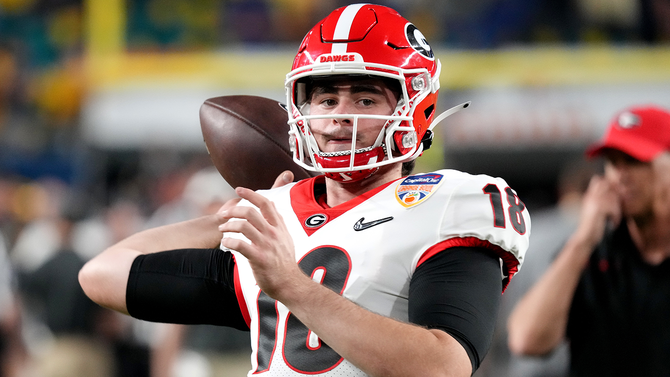
This journey began one game into his second season at USC (2019). Daniels blew out his ACL in the opener, missed the rest of the season and eventually got a waiver to transfer to Georgia. Over the course of two seasons with the Bulldogs, he played in 10 games, started seven and got a national championship ring. Here's a glimpse of Daniels' situation in the middle of that 2021 title run.
"It's really cool to go to a game where there are 95,000 people 20 minutes before kickoff," Daniels remembered. "I was 7-0 as a starter at Georgia. I absolutely love Georgia fans. They're incredible. Every interaction I ever had was nothing but supportive.
"I never, like, blew a game."
After getting his psychology degree at Georgia, Daniels didn't take the traditional "walk" in a graduation ceremony. Football life beckoned. He transferred to West Virginia; at that point, he had not lost a game as a starter in three years. Of course, over those three years was a redshirt season at USC, another injury (oblique) at Georgia and a quarterback shuffle with Stetson Bennett.
"We're really close friends," Daniels said of Bennett. "I'm really good friends with every quarterback I've ever been with. I've never been in a bad quarterback room where the two guys competing really didn't like each other. Most guys are able to understand … which ever one gets picked, it's believed, is better for the team."
At Rice in 2023, Daniels became one of highest-rated recruits in the program's history. The former national high school player of the year ended with a career-high 17 touchdown passes in his final season.
Greatness was projected for the kid from high school superpower Mater Dei in Orange County, California. Six years and 9,100 yards passing later, Daniels finished 21-15 as a starter. He played in one career bowl game.
But football was never going to be the end all. Daniels basically doubled up on classes at Mater Dei so he could graduate high school in three years.
"If you get a full, free education to play football, football is part of the agreement you're signing [up for] -- no matter if it conflicted with [school]," Daniels said.
In this case of rampant transfers, athletes still must navigate NCAA progress toward degree requirements. Credits don't always transfer. Daniels estimates "60% to 70% of your transfer credits go in the dust."
Daniels said he once had a behavioral neuroscience class from USC (a private school) that didn't transfer to Georgia (a state school). While graduates only have to maintain a handful of hours to remain eligible, Daniels is on an MBA track at Rice.
"It's a common misconception that athletes don't do school," he said. "There are athletes that don't do school, but they're f---ed. They're academically ineligible."
Through it all, the former five-star prospect -- ranked No. 6 nationally in the Class of 2018 by 247Sports -- was always going to be a coach. Daniels was in the same class as Trevor Lawrence and Justin Fields, both of whom already have multiple NFL seasons under their belts.
Daniels, though, is on the road to becoming a college coach. He knows there will be long hours and low pay at the entry level but revels in what is ahead.
"There is a very strong rite of passage in the [coaching] industry," Daniels said.
He already knows a little bit about grinding.













